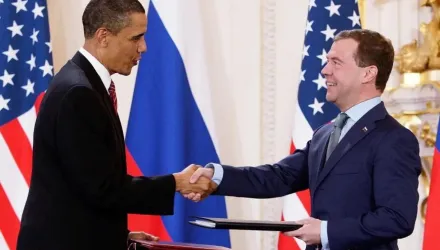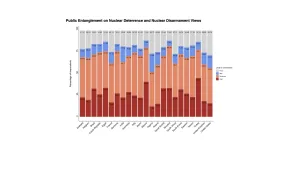Go Your Own Way? Alliance Coercion, Strategic Reassurance, and West German Nuclear Ambitions
Note new location!
What is the effect of alliances on nuclear proliferation? On the one hand, theories of assurance contend that states with a powerful ally can forego indigenous nuclear capabilities. On the other hand, critics argue that external reliance violates the "self-help" principle in world politics and cite evidence of nuclear ambitions among numerous U.S. allies. To resolve this debate, the speaker proposes a theory of alliance coercion and tests its predictions against evidence from the West German case.
Please join us! Coffee and tea provided. Everyone is welcome, but admittance will be on a first come–first served basis.




